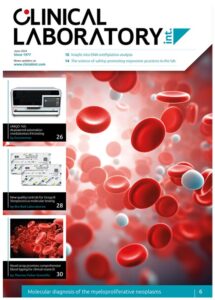Trial results show that new drug slows the progress of Alzheimer’s disease
In September, the companies Eisai and Biogen announced good news about the results of their ‘Clarity AD’ clinical trial of their drug lecanemab (https://www.eisai.com/news/2022/news202271.html).
Lecanemab is an anti-amyloid beta protofibril antibody designed to remove the toxic aggregates of beta-amyloid proteins that build up in the brains of people with Alzheimer’s disease (AD). The trial was a global confirmatory phase 3 placebo-controlled, double-blind, parallel-group, randomized study in 1,795 people with early AD. Patients in the treatment group were given lecanemab bi-weekly for 18 months. The primary end-point was a change from baseline in the Clinical Dementia Rating-Sum of Boxes (CDR-SB) and a key secondary end-point was a change from baseline at 18 months compared
with placebo in amyloid levels in the brain measured by PET. The good news is that the primary and key secondary end-points of the trial were met: cognitive decline had been reduced by 27% over the course of the 18-month trial, compared with people given placebo, with the improvement starting as early as 6 months; and a highly statistically significant reduction in amyloid levels in the brain was also seen.
Limited symptomatic side effects of brain swelling – amyloid-related imaging abnormalities-edema/effusion (ARIA-E) – were noted in 2.8% of patients in the lecanemab treatment group, which the companies state was within expected levels. Full trial results will be published later in the month, but this news has been welcomed by medics, scientists and patients. These gains have been hard won, with so many drug trials failing, that questions were beginning to be raised about whether amyloid beta was really the cause of the disease. However, this study shows that removal of aggregated amyloid beta in the brain is associated with a slowing of decline in patients at the early stage of the disease, confirming the link between amyloid beta plaque development and disease progression. For this study, patients with mild cognitive impairment due to AD were chosen and amyloid pathology was confirmed by PET, which allows the selection of patients who are at a stage in the disease process where anti-amyloid therapy will be effective. If lecanemab becomes an approved AD therapeutic, wouldn’t it be nice to have a blood- or CSF-based biomarker to help to identify which patients to send for a PET scan?




